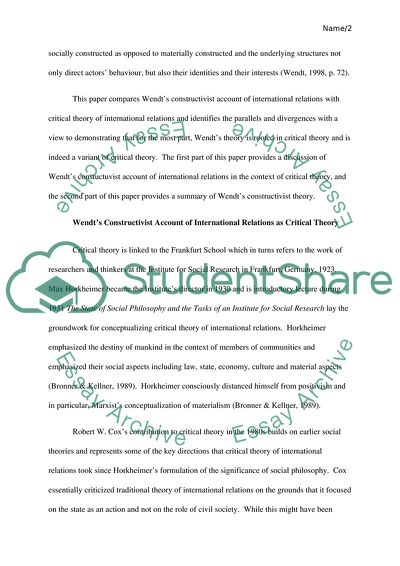Cite this document
(Wendt`s Constructivist Account of International Relations Dissertation, n.d.)
Wendt`s Constructivist Account of International Relations Dissertation. Retrieved from https://studentshare.org/social-science/1787613-is-wendts-constructivist-account-of-international-relations-a-critical-theory
Wendt`s Constructivist Account of International Relations Dissertation. Retrieved from https://studentshare.org/social-science/1787613-is-wendts-constructivist-account-of-international-relations-a-critical-theory
(Wendt`s Constructivist Account of International Relations Dissertation)
Wendt`s Constructivist Account of International Relations Dissertation. https://studentshare.org/social-science/1787613-is-wendts-constructivist-account-of-international-relations-a-critical-theory.
Wendt`s Constructivist Account of International Relations Dissertation. https://studentshare.org/social-science/1787613-is-wendts-constructivist-account-of-international-relations-a-critical-theory.
“Wendt`s Constructivist Account of International Relations Dissertation”, n.d. https://studentshare.org/social-science/1787613-is-wendts-constructivist-account-of-international-relations-a-critical-theory.


